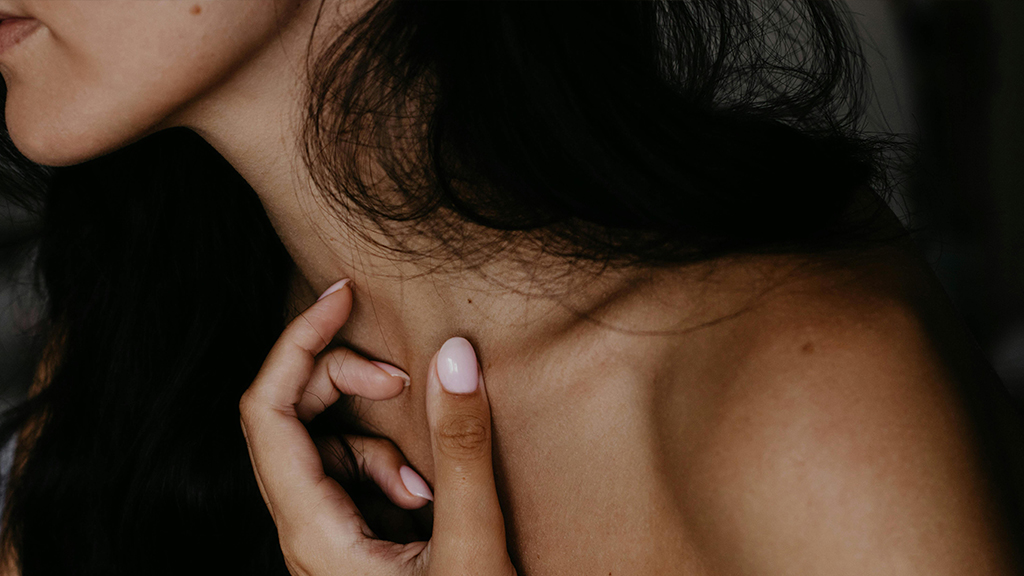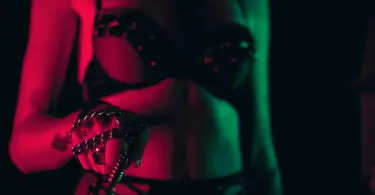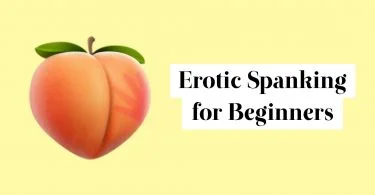Yep, that’s right: we’re going to discuss the R word. Buckle up!
When it comes to sexual fantasies there are few bigger taboos than rape fantasy, especially for women. Today is the age of the #MeToo movement, of calling out sexual assaulters and standing up for our rights as women. And it’s about damn time!
But what does it mean for those of us who get turned on at the idea of being raped? Are we letting the side down or is it just harmless fantasy? Is it bad that I want to be raped? And what about those of us -including me- who have been raped, is there something wrong with us?
Make sure to check out Beducated's Kink & BDSM Online Courses

You’re Not Alone
Firstly, if you find yourself fantasizing about rape and thinking you’re a freak, let me reassure you that you’re not the only one. Research has found that between 31% and 57% of women have fantasies in which they are forced into sex against their will.
And in 2017, ‘rough sex’ and ‘gangbang’ were the 6th and 7th most popular term women searched on Pornhub. As well as porn videos, rape fantasy short stories are also extremely common and are easy to find online.
The R Word
Let’s talk about the elephant in the (bed)room: the word rape.
For most women, it’s a word rarely used in conjunction with sexual fantasies.
It’s used to describe an unwanted and violent act, one that’s horrific and traumatic for anyone. That’s about as far away from actual sex as you can get; in my book, sex is safe, consensual and fun.
So how can a word with such a negative meaning then be used to describe a fun sexual fantasy? Well, for many women, it can’t. In fact, most women prefer to use a word or a term other than rape fantasy, such as ‘rough sex’ or ‘forceful’.
A study found that 52% of women said they fantasized about being ‘overpowered’ by a man but only 32% admitted to fantasizing when the word ‘rape’ was used.
For other women, it’s the taboo nature of the terminology that turns them on. It’s really just a matter of personal choice when it comes to how you label your rape fantasy stories.
Fantasy Versus Reality
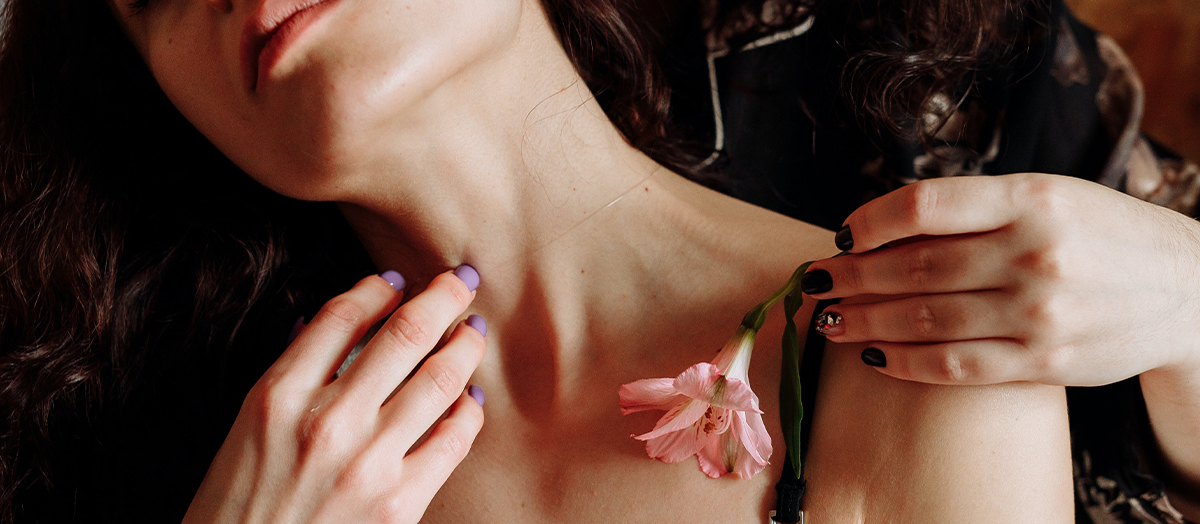
For a lot of us, the difference between our sexual fantasies and our actual sex life couldn’t be greater.
It’s almost like there’s two different versions of ourselves.
One who has a sex life that ranges from dull right through to kinky, and the other who comes up with the weirdest and most perverted sexual scenarios. For some, the two versions will sometimes collide in experimental and explosive nights of debauchery. For others, the two will never meet and will remain separate yet perfectly satisfied.
And of course, when it comes to the sex rape fantasy, most people fall in the latter category. Much like fantasizing about people other than your partner, it’s not a scenario you actually wish to act out -unless, of course, it’s in a safe, controlled and consensual environment.
In a world where giants, tentacles, and Pokémon have all topped the ‘searched for’ porn charts, it’s clear that fantasies are often just that: a moment of make-believe.
The Importance of Control
Many people find it difficult to shake the shame and guilt; wondering why they could get off on something that in reality is so horrifying. And that’s especially true for people who have been raped.
However, there is one major difference that I believe is key: control. The actual act of rape is a criminal offense in which the victim has no say and no control.
In a fantasy, you’re in complete control.
As David J Ley, Ph.D., wrote in Psychology Today: “In this particular instance they’re in control of the situation: Their imagination is in control.”
Take BDSM, for example. When BDSM is done correctly, it’s the submissive participant that has the real control, rather than the dominant. They get the final say about boundaries, about limits and using the safe word. So, while you’re thinking ‘I want to be raped so badly’ you may be imaging a scenario in which you don’t have any say…but actually, you do.
There’s an element of wanting to be seen as a sex object; someone so beautiful and hot that a man sees you as pure sex. You want your sexual partner to be so turned on that he must have you right then and there.
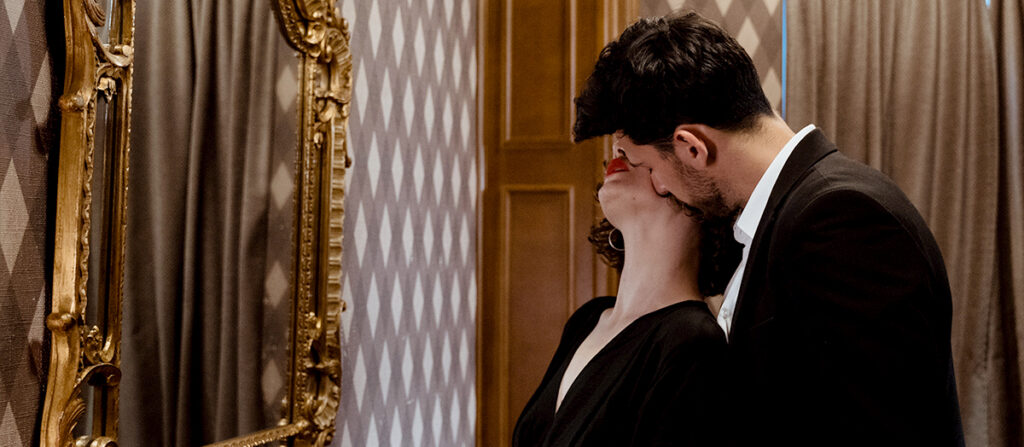
The Feminist Factor
Some of us may consider ourselves feminists, or at least supporters of women’s rights. So, does fantasizing about one of the worst kinds of violence against women mean we should be stripped of our badges?
Well, first up, rape is not a gender-specific crime nor is it a gender-specific fantasy. Just as men can be victims of rape, so too can men fantasize about being raped or controlled. Equally, many women fantasize about being raped by other women.
The issue comes back to reality over fantasy.
I can get horny over the idea of being gangbanged whilst still standing up for my fellow woman’s right to be free of sexual assault in the workplace. What I think about in the privacy of my own mind whilst masturbating isn’t in any way a reflection of my day-to-day morals and opinions.
Feminism is about ensuring the rights of all women, including their sexual rights. It’s about having the freedom to be true to who you are as a woman and that includes the freedom to safely enjoy my sexuality -no matter how ‘perverted’ it may be.
If You’ve Been Raped
It can be extremely confusing for a victim of rape to then have fantasies about being raped -whether you had them before the rape or after.
For me, the fact that I was raped has nothing to do with my sex life.
That was a crime committed against me; it was violence, not sex. My sex life and fantasies belong to me and whomever I choose to share it with.
Make sure to check out Beducated's Kink & BDSM Online Courses

There may be a few of you out there thinking ‘I was raped and it felt good’.
For some women -and men- there’s a biological reaction that happens during sex, rape or not. If you’re struggling with guilt or confusion over your body’s reactions, it may be a good idea to seek further support from a therapist.
If you’ve been raped and you’re struggling to cope or need any emotional support, please seek professional guidance. Ask your doctor or search online for the rape support helpline in your area.
What Does Science Say?
Perhaps surprisingly, there have been plenty of studies carried out on this subject. And you know something? Absolutely none of them concluded that there’s anything wrong with you, or me, or anyone else who has these fantasies.
In fact, a study by The University of Texas found that the reason why women have rape fantasies may be related to being sexually open and craving being sexually desirable. It also found that there’s little evidence that it has anything to do with feeling repressed or guilty about sex.
Research has also shown that being a victim of rape or sexual abuse has no relationship whatsoever with why women have rape fantasies. In other words, if you’re fantasizing about being raped, it’s not because you were once raped.
So, Who’s Fantasizing about Rape?
Well, according to research the women most likely to have these types of fantasies are high in self-esteem, confident about their appearance and comfortable with their sexuality.
The level of research carried out is perhaps a testament to how common having a rape fantasy is. It may not be the most socially accepted fantasy – in fact, you may well call it by an entirely different name to avoid the stigma and that’s completely fine. You do you, girl.
Just remember that there’s no shame or guilt when it comes to what turns you on.
Quite the opposite: if you’ve found a fantasy that works for you, that’s something to be proud of. Embracing the things in life that make you feel good? That doesn’t sound wrong to me.
Make sure to check out Beducated's Kink & BDSM Online Courses


